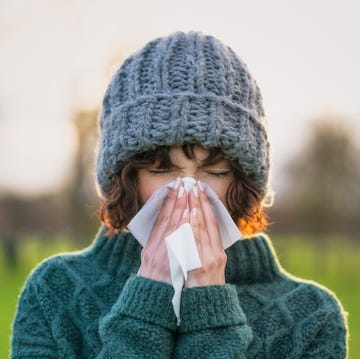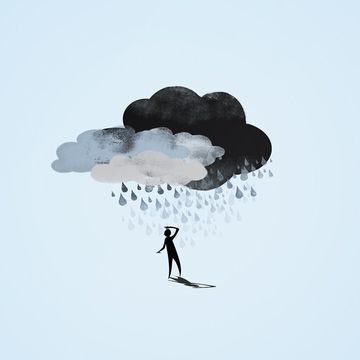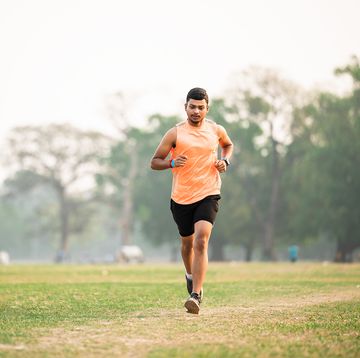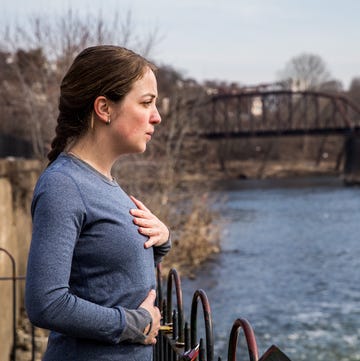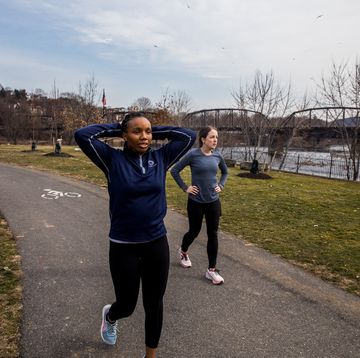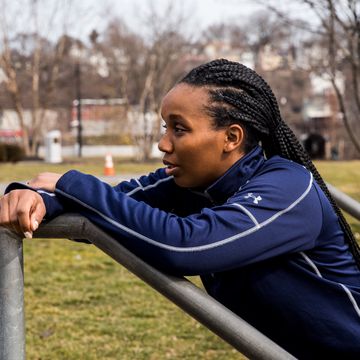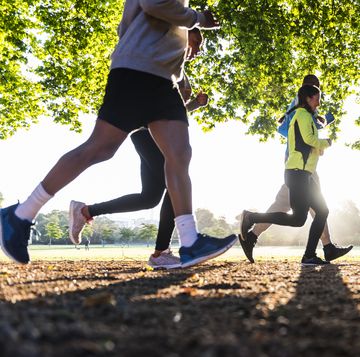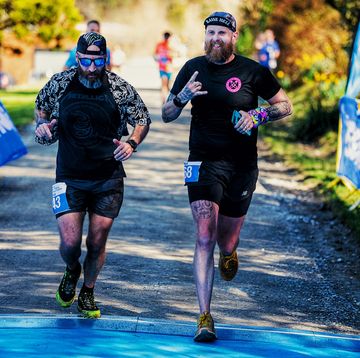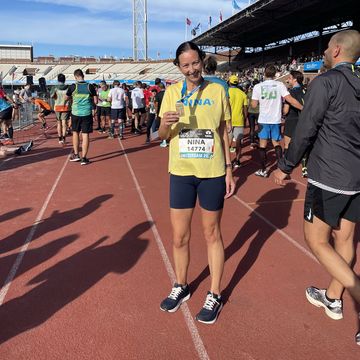Katy Martins always running with her dad, Jim. She would sometimes do a short loop with him before he went for a long Sunday run around Richmond Park in west London. But in 2008, when Katy was 12, she lost her dad to suicide. ‘There are so many things that he’s missed, and so many more things that he will miss,’ she says. ‘You learn to deal with that better as you get older, but it does get really, really tough at times.’
But finding like-minded people helps. Last year, through the charity Movember, Martins, 26, joined other ‘Mo sisters’ – young women with similar experiences – to run both the Best winter running gear and the London Marathon The secret to achieving the elusive runners high.
‘Until then, I’d never met anyone in a similar position to me. It’s almost been taboo to talk about someone’s death if it was by suicide,’ she says.‘With these women – some who’d lost their dads, some who’d lost a brother – as soon as I met them we had a level of understanding that you don’t get from other people. We all had similar questions: why did this happen? Could I have done something differently? Could I have helped him to link up with more friends? Could I have been a better daughter? When I met the others, it was comforting to know that I wasn’t going crazy and that grief commonly presents itself in those ways.’
Can running make you happier mental health. ‘I’ve suffered quite significantly with depression, anxiety and bulimia over the years,’ she says. ‘If I haven’t been running for a week, I’ll know about it. My brain feels quite busy.
The first 10 minutes are always the toughest, trying to find that flow, but then I get that feeling of a weight being lifted. I always come back feeling better than when I left. It’s the only thing that really works. When I’m running, a part of me feels like I’m with my dad.’
Advertisement - Continue Reading Below marathon made running an even bigger part of her life. When she was a young girl, Martins would dream of running one with her dad. They used to watch the London Marathon on TV. ‘Doing the marathon was a very personal challenge and I’m so proud I’ve done it. I haven’t always had enough faith in myself. Running is a way of taking down those demons in your head saying that you can’t do certain things.’
As public perceptions around mental health have become more enlightened, it’s been easier for Martins to share her experiences more widely, too, and be heard. When her dad died, she didn’t receive enough understanding from those around her. Her school had no pastoral care in place. She was bullied by classmates, who found it easy to get a reaction by bringing up her tragedy. When she walked out of a session in which students were asked to talk about what they were getting their dads for Father’s Day, she was excluded from school. And her town’s local newspaper wrote about her dad’s death with such insensitivity that her family fought to get the article pulled. ‘I feel like a lot of my childhood was robbed from me. But my mum did her best to keep me afloat and I wouldn’t be here without her.’
In today’s more thoughtful climate, it doesn’t feel intrusive to ask her about her experiences. ‘I welcome opportunities to talk about it, in the hope that it might help other people,’ she says. ‘We can speak about mental health in a more positive way. And I like being able to amplify the voice of my dad because he obviously didn’t feel heard, and that’s why what happened did happen.’
Martins did a master’s in the psychology of mental health and now works for Movember. She praises the charity’s ‘Conversations’ – an online tool to help people to find ways to talk to someone about their mental health – and the ‘ALEC’ model: ‘Ask, Listen, Encourage action, Check in.’ There’s also ‘Ahead of the Game’, anew programme to show adolescents how to look out for their mental fitness as well as their physical health.
It’s progress, but Martins thinks society still makes it harder for men to display vulnerability. ‘It’s not that being masculine is the problem; the charity is not asking men to change the way they are. It’s about being more open. You might have had a bad day and don’t want to come home and put that on your family. But it is possible to be a strong man and share your feelings.’
If you’ve been affected by the issues covered in this article, Samaritans provides confidential support 24 hours a day, 365 days a year. Call 116 123.


